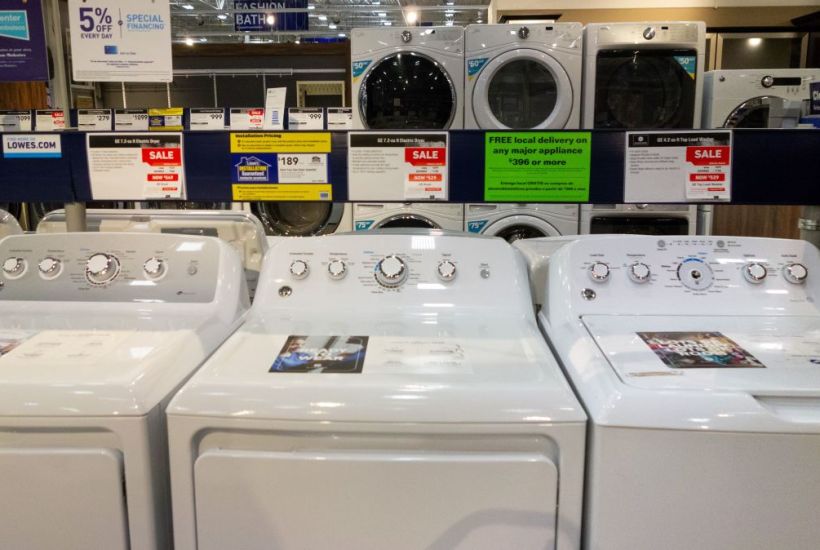The Commonwealth government’s proposed laws limiting small loans and the leasing of consumer goods by setting caps on repayments which are not even means-tested, will effectively cripple an entire industry and deprive low-income earners of everyday essentials.
Given that one of the coalition’s key principles is to protect small business, this is a poor and ill-considered move on their part that will affect the jobs of at least 1,500 ordinary Australians and destroy over 380 small businesses, limiting consumer choice. Backed by Labor, the reforms do not ring true to Liberal values.
The typical story regarding small or ‘payday’ loans is that they lead to a cycle of debt for people that are already struggling. Many working in this industry are portrayed as predatory and are seen as taking advantage of the uneducated. However, it is often the case that these lenders provide a service where the banks cannot, and do so for people that are in dire need of money for unexpected costs, or that are deprived of the sort of everyday appliances that we take for granted.
While the interest rate on these loans may be higher than conventional loans, this should not be a problem provided that those rates are transparently disclosed and customers know what they are getting into. The repayments for leased consumer goods also reflect maintenance costs and serve as a form of insurance given the risk of damage.
In fact, over 500,000 Australians, including many from rural and regional areas, may end up going without essential household items like fridges, washing machines, and televisions if these laws are enacted.
With the introduction of these changes to the small loans and consumer goods leasing laws, it seems that the government is assuming lower income earners don’t know how to sufficiently manage their money, and therefore cannot be trusted to make their own financial decisions. This is not only a frankly insulting and patronising sentiment, but ought to be completely out of their purview.
It is not appropriate for the government to dictate how Australians spend their own hard-earned money. Financial Services Minister Kelly O’Dwyer, supported by Labor, intends to cap the repayments for small loans and consumer good rentals to 10 per cent of the consumer’s income, without means testing.
This sort of system may make sense for those who are solely reliant on government welfare programs like Centrelink payments, but not for those that are looking to lease a good and are not dependent on the taxpayer purse. The proposed laws will potentially set an unfair and unwelcome precedent in regard to loans in Australia; car and home loans included.
This will have a massively detrimental effect, especially on small businesses that rely on higher rates of repayment due to their smaller customer base. The closure of these businesses reduces consumer choice and may lead people to choose other insecure and unregulated options like loan sharks which expose them to further risks.
Making it even more difficult for individuals on low incomes to access home, car or consumer goods loans under the guise of shielding them from risks they and the lenders are voluntarily willing to undertake will only undermine the ability of these individuals to achieve social mobility and better living standards.
The amount of lending vendors in Australia clearly indicates the need and demand for their services. Whilst there is also a need for more transparency around these services, and a desire to promote more ethical lending practices, it should not be at the expense of families and businesses who will not be able to access essential credit or basic appliances if the reforms are passed.
There are already options for those that are struggling from loan-induced debt that can be accessed through the ASIC website. There is no need to punish hundreds of businesses across the country, or potentially millions of Australians and our families across the country, based on the mistakes or mismanagement of a few individuals.
The government is attempting to increase the transparency of small loans and consumer goods leasing, but the road to hell is paved with good intentions. The small loans repayment cap reform does not conform to Liberal values of individual freedom and personal responsibility. It instead limits consumer choice and damages the livelihoods of small business owners while acting as another cause celebre of our infamous nanny state that tells us on a daily basis that government knows best when it comes to living our lives or ‘protecting’ us from our own decisions.
The proposed reforms are patronising, inherently illiberal, and an unprecedented attack on the working and middle class.
Mackenzie Lofts is a research associate with the Australian Taxpayers’ Alliance.
Got something to add? Join the discussion and comment below.
Got something to add? Join the discussion and comment below.
Get 10 issues for just $10
Subscribe to The Spectator Australia today for the next 10 magazine issues, plus full online access, for just $10.


























Comments
Don't miss out
Join the conversation with other Spectator Australia readers. Subscribe to leave a comment.
SUBSCRIBEAlready a subscriber? Log in